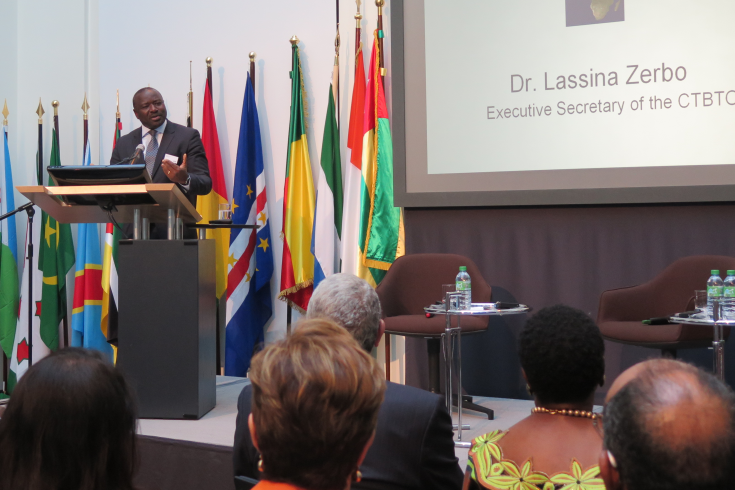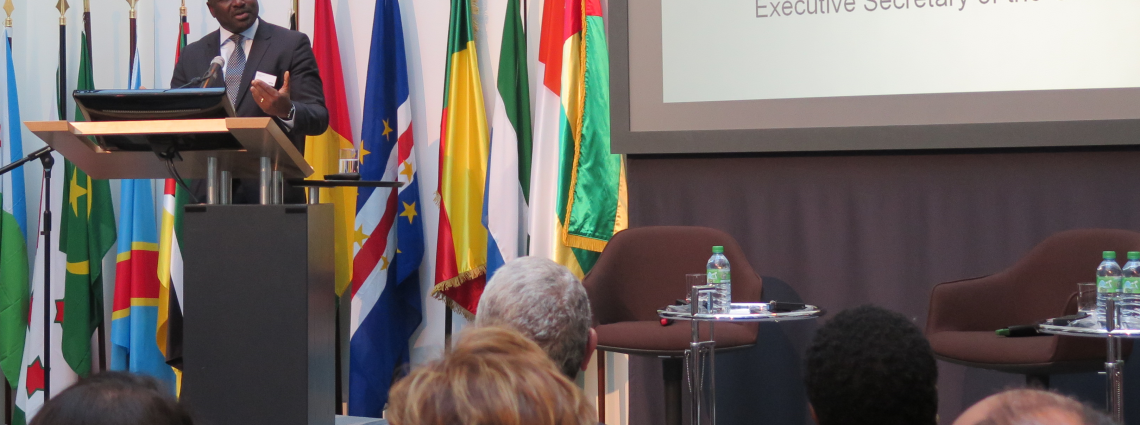African Ambassadors discuss CTBT entry into force

CTBTO Executive Secretary Lassina Zerbo giving the keynote speech at the Africa Day event.
Africa needs to be part of the global picture. We can't just leave a global security issue like nuclear arms control to the usual suspects.
CTBT status in Africa - click for interactive map.
Even the least developed African country is entitled to receive the same monitoring data as the world's most developed country. This makes the CTBT the most democratic treaty in the world.
The Ambassador of Burkina Faso to Berlin, Marie Odile Bonkoungou Balima (2nd from right) hosted a round-table discussion with the embassy's staff.
22 May 2014
